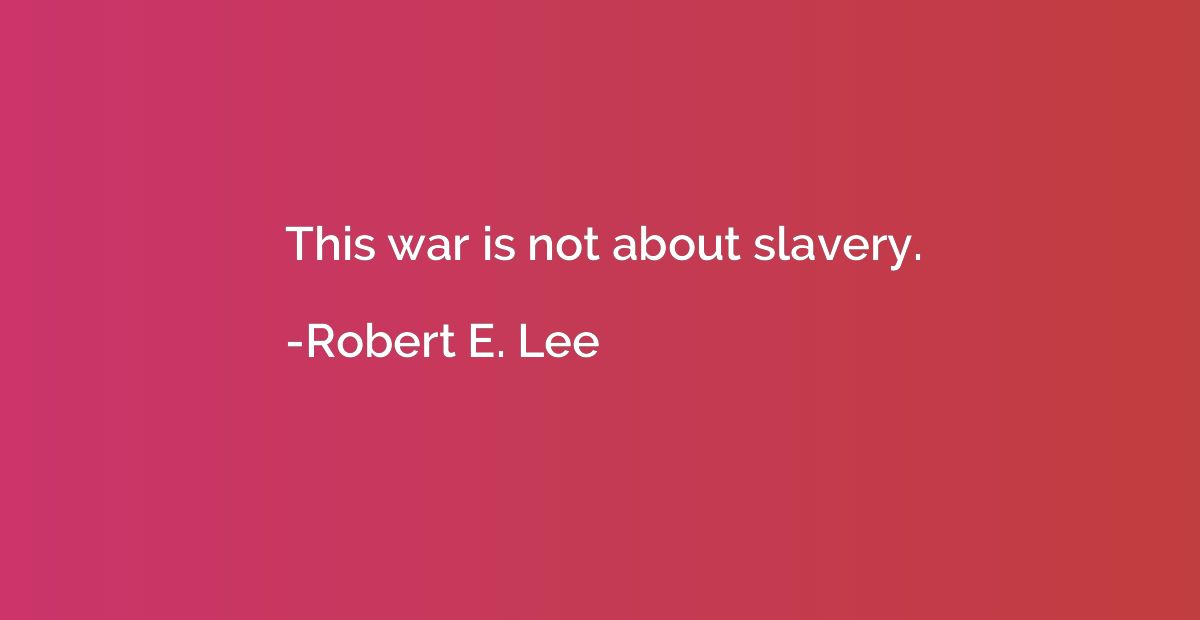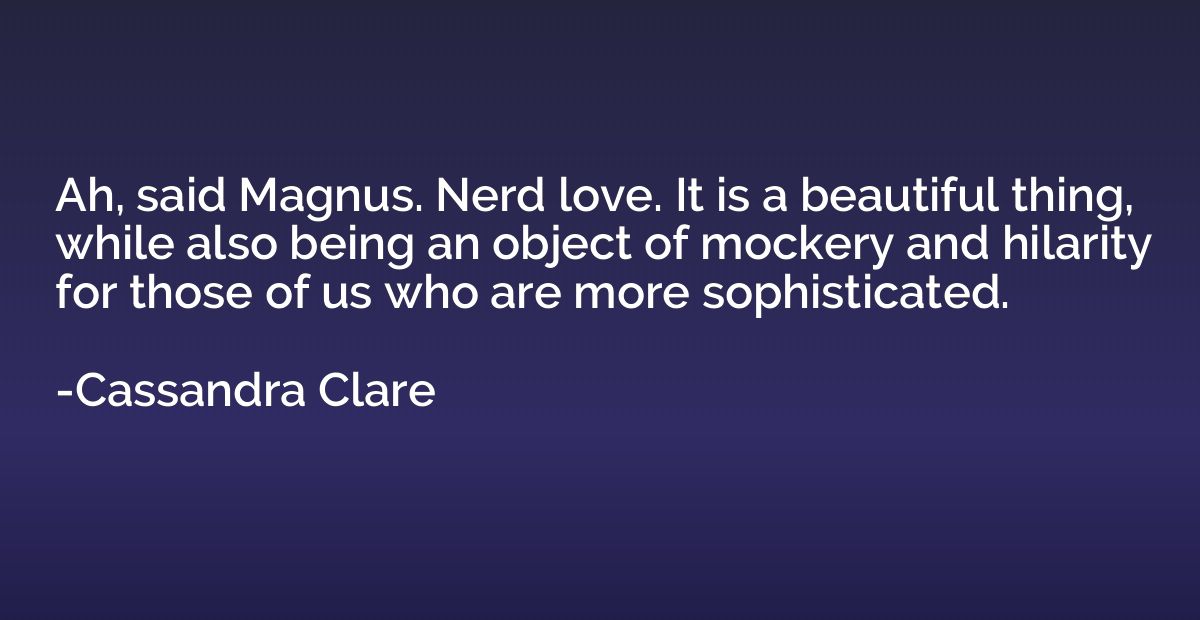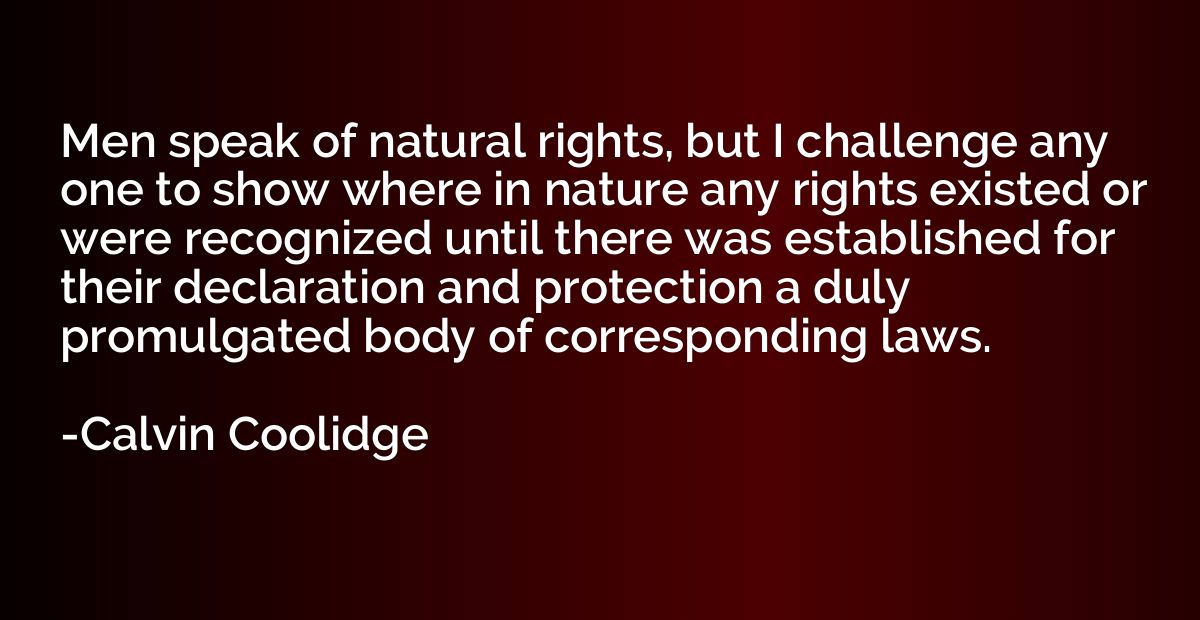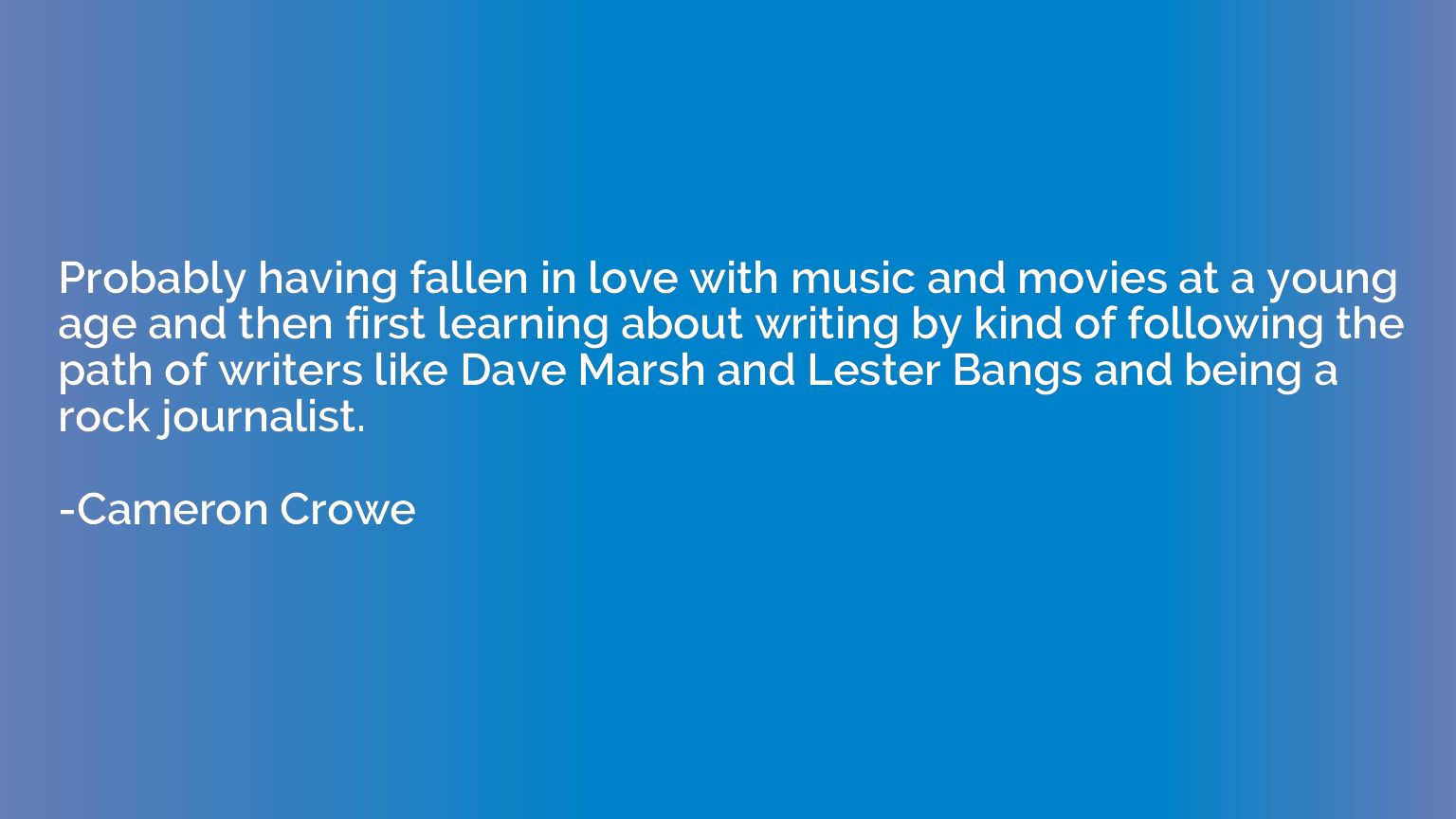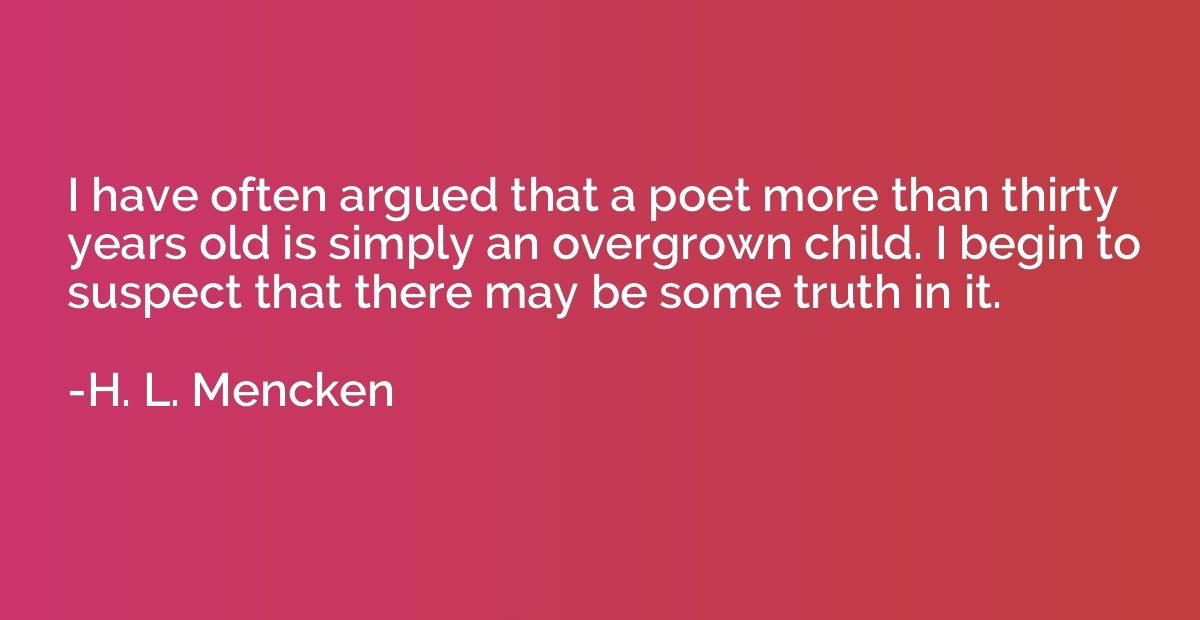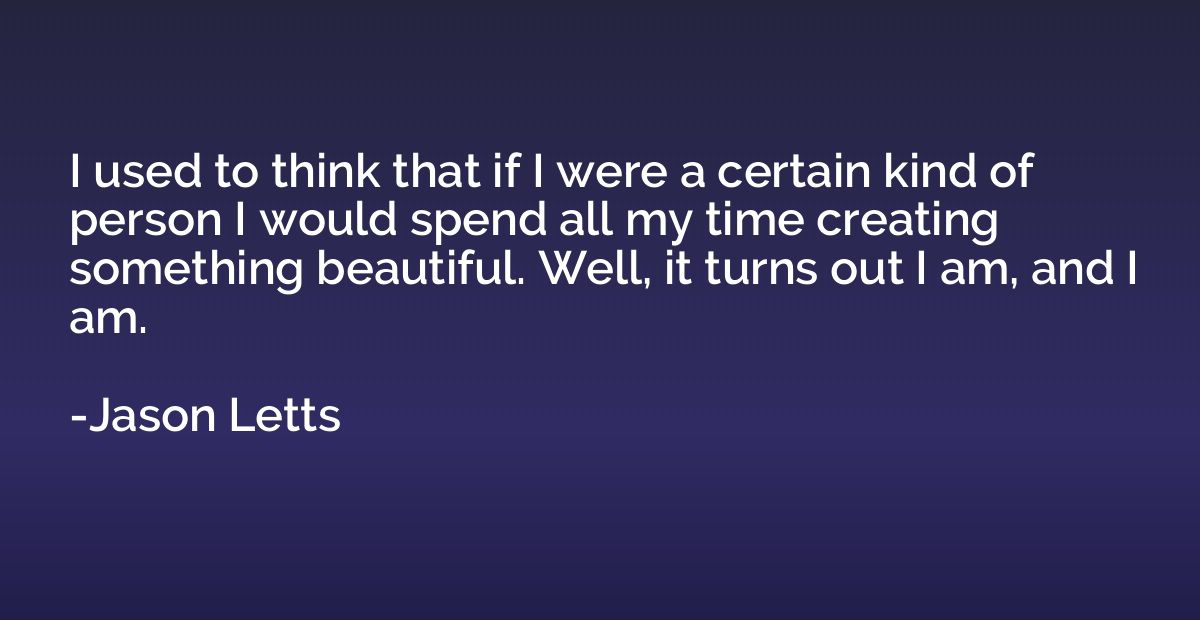Summary
This quote suggests that the war being referred to is not primarily motivated by the issue of slavery. It implies that there might be other underlying factors, causes, or conflicts driving the war. The intention of this statement could be to divert attention from the issue of slavery or to highlight other important elements that are overshadowed by the focus on slavery. However, without further context, it is difficult to discern the specific intent or implications of this quote.
